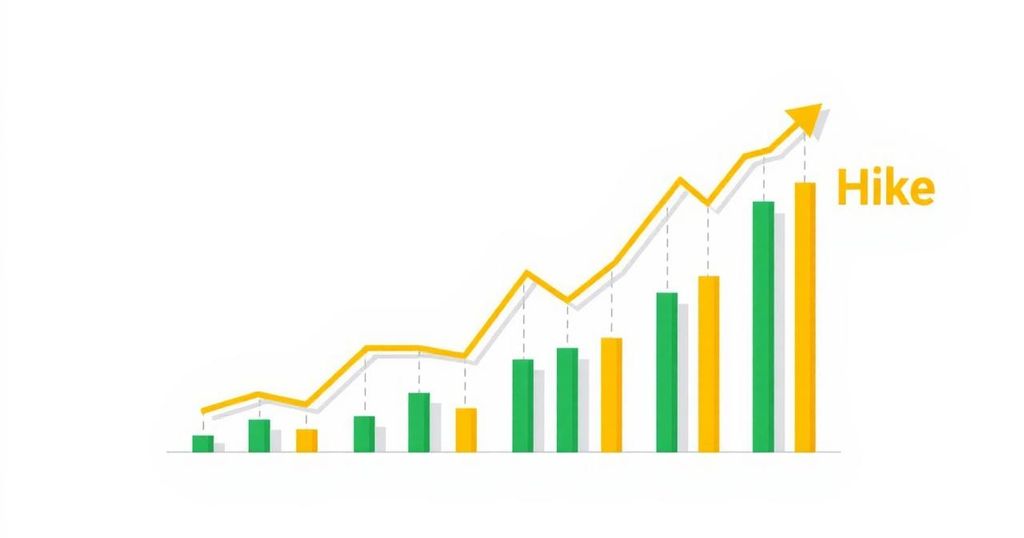Brazil’s central bank raised interest rates by 100 basis points, marking the third hike this year. The Selic rate is now 14.25%, with signals pointing towards smaller increases in the future. Governor Gabriel Galipolo oversees this period while managing inflation and economic growth concerns under President Lula’s stimulus measures.
On Wednesday, Brazil’s central bank raised interest rates by 100 basis points, marking the third consecutive increase. This decision aligns with earlier guidance and sets the benchmark Selic rate at 14.25%, a level not seen since 2016. The unanimous decision met the expectations of all 37 economists surveyed by Reuters. The committee expressed that a smaller adjustment is anticipated at the next meeting if conditions unfold as projected.
The markets were particularly attentive to the central bank’s future indications, especially under the leadership of the new governor, Gabriel Galipolo, who succeeded Roberto Campos Neto in January. Galipolo is a close ally of President Luiz Inacio Lula da Silva and has adhered to prior guidance from Campos Neto, which included plans for a tightening of 200 basis points in the first quarter.
With inflation control being a primary focus, Governor Galipolo faces the challenge of managing the economy while Lula boosts stimulus measures, which could conflict with the central bank’s objective to temper economic activity. This decision coincided with the U.S. Federal Reserve’s stable rates as they evaluate the Brazilian administration’s policies.
Although Brazil’s currency has increased over 9% against the U.S. dollar this year, long-term inflation expectations have worsened, raising concerns regarding the path towards the official target of 3%. Recent economic indicators suggest that Brazil’s activity weakened more than anticipated last quarter. Nevertheless, recent data indicates a degree of resilience.
The central bank has adjusted its inflation forecast for 2025 down to 5.1% from a prior estimate of 5.2%. Furthermore, for the third quarter of 2026, influenced by current monetary decisions, the expected 12-month inflation rate is now forecasted at 3.9%, improving slightly from the previous 4.0% estimate.
The Brazilian Central Bank’s recent decision to increase interest rates by 100 basis points reflects a careful approach amid economic challenges. While the Selic rate rises to 14.25%, the outlook signals a potential moderation in future rate hikes, contingent on economic growth signals. Governor Galipolo’s tenure will be critical in navigating inflation control and responding to President Lula’s stimulus initiatives in a complex economic environment.
Original Source: www.tradingview.com




